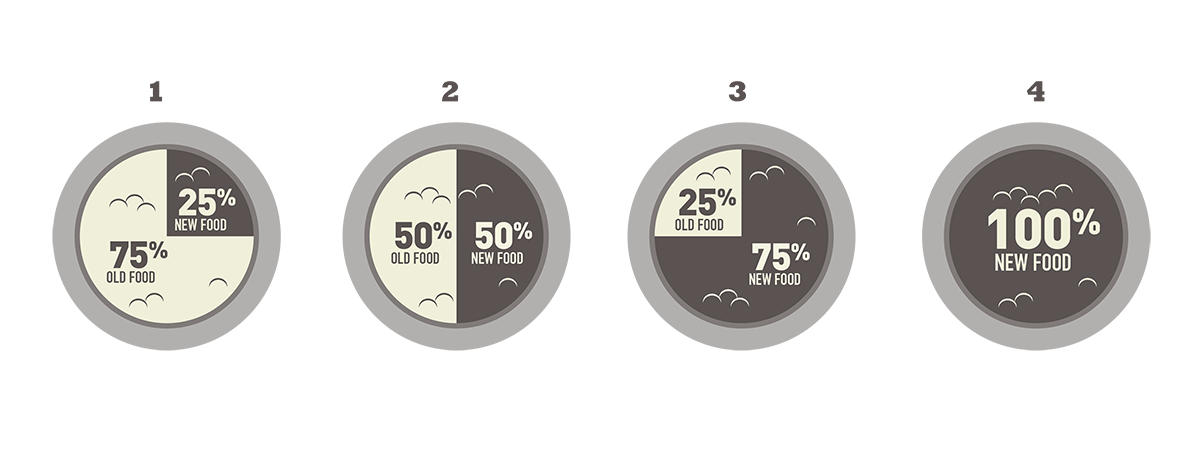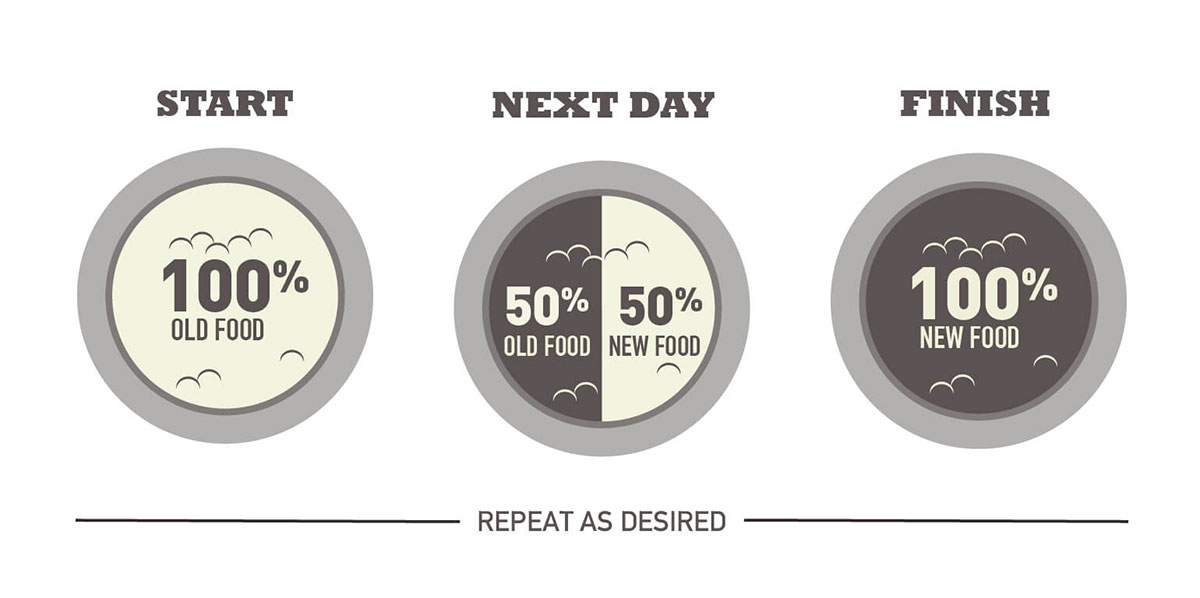Frequently Asked Questions
As Pet Lovers ourselves, we understand that peace of mind is paramount. That’s why we strive to answer any questions you might have about our ACANA foods. Wondering about which recipe to choose for your pet, where we source our Fresh Regional Ingredients, or what goes into making the foods in our NorthStar Kitchen? Check out our Frequently Asked Questions to learn everything you need to know about our Biologically Appropriate foods!
Have a question you don’t see here or just want to chat about our foods and how they are made? Please contact our Customer Care Team and we’ll be happy to help!
Our ACANA Foods & Treats
ACANA foods and treats are a celebration of our longstanding commitment to making Biologically Appropriate foods from Fresh Regional Ingredients. Rich in meat protein, ACANA foods feature 50-75% regionally sourced quality animal ingredients.
Prepared in our award-winning NorthStar Kitchen, ACANA foods offer a taste experience your dogs and cats will love!
Q. DO YOU OFFER A BREEDER PROGRAM?
If you are a registered breeder in the UK or Ireland, we do offer a Breeder Program. Contact us to find out more about our Breeder Program.
Q. HOW DO I TRANSITION MY PET TO ACANA FOODS?
Dogs and cats are often fed the same food for a long period of time, which means a sudden food change makes it difficult for their digestive systems to adapt. That’s why it’s important to introduce new food gradually. Going slowly will give your dog or cat time to adjust to their new food and will also reduce the chances of digestive upset. Start by mixing 25 percent new food with 75 percent old food. Slowly increase the new food proportionately over the next 5-7 days until you are feeding 100 percent new food.

Q. WHICH ACANA DIET SHOULD I CHOOSE?
The first time you transition your dog or cat to ACANA, we recommend selecting a recipe with a meat-type that matches the food you are currently feeding. This will help allow for the easiest transition and also minimize the risk of gastrointestinal upset. For example, if your dog is currently on a poultry-based diet, you may want to try the ACANA Prairie Poultry or Wild Prairie.
It is also important to consider the life stage of your pet. The good news is that the vast majority of our foods are formulated for All Life Stages, as recommended by FEDIAF. This means that you can start feeding these diets to puppies or kittens, right from when they are first introduced to kibble at around 3-4 weeks old. Our All Life Stages diets also meet all the nutritional needs for senior pets. The only ACANA diets that would not be recommended for growing puppies and kittens are the ACANA Senior and Light & Fit diets.
For more specific dietary needs, please contact our Customer Care department.
Q. WHAT IS A ROTATIONAL DIET? CAN I DO THIS WITH ACANA?
After initially transitioning to ACANA, what many Pet Lovers do is a method of feeding known as Rotational Feeding. Rotating between ACANA formulas prevents your dog or cat from getting tired of eating the same thing day in and day out, while offering them a great variety of proteins and fats. A good place to start is rotating by the bag – when you have finished one formula, your next bag will be a different recipe. The first time you introduce a new food for rotation, mix the food 50/50 just to make sure your pet transitions well to the new ACANA food. However, if your dog or cat is more diet-sensitive, do a full transition when introducing a new ACANA food – after that you can change at will.

Q. DO YOU HAVE ANY FEEDING TIPS?
Feed according to your dog or cat’s size, breed and stage of life. Consider that puppies and kittens require up to twice the energy of full-grown pets, and that overweight and senior pets often need smaller meals – just like people!
We recommend that for most pets, you feed twice daily. Simply divide the amount suggested on the feeding guide into two meals, spaced eight to 12 hours apart. For example, if the feeding guide calls for 1 cup per day, we recommend feeding ½ a cup in the morning and ½ a cup at night. You may need to adjust portions as you learn your pet’s ideal daily “maintenance” amount. These amounts may change over time as your pet ages. Always keep in mind that a lean dog or cat is a healthy pet.
Many dogs and cats have large appetites and will eat everything you feed them. As ACANA foods are highly palatable, you need to be careful not to overfeed, as this can cause issues such as loose stool or unwanted weight gain.
Q. HOW MANY TREATS SHOULD I FEED?
We all love to give our pets treats. However, treats should be given in moderation and should represent 10% or less of your pet’s daily food intake. The rest should come from a nutritionally complete feeding program. When using treats frequently, such as during training exercises, try to use small pieces.
Q. WHAT DOES BIOLOGICALLY APPROPRIATE MEAN?
The Biologically Appropriate concept is simple: mirror the freshness and variety of meats that dogs and cats are evolved to eat. For more information on our Biologically Appropriate philosophy and to view the five principles that reflect our commitment, please visit Biologically Appropriate.
Q. WHAT IS MEATMATH?
MeatMath is designed to help you assess if your food is Biologically Appropriate. Biologically Appropriate foods are formulated to match the eating anatomy of the animal they are intended for. Dogs and cats are evolved as carnivores, which means they require high concentrations of meat, high inclusions of fresh meat, and a rich diversity of meat.
Is your food Biologically Appropriate?
Answer the three meat questions: How Much? How Fresh? How Many?
- How much meat is in the total diet? ACANA contains 50-75% meat
- How much fresh or raw meat is in the total diet? ACANA contains 1/3 – 1/2 fresh or raw meat
- How many meats are included in the diet? Each ACANA recipe contains 1-5 different meats
Q. WHAT DOES WHOLEPREY MEAN?
Nature matched the nutrients in whole animals to perfectly meet your dog or cat’s biological needs. ACANA WholePrey represents the evolution of ACANA foods by incorporating meats, organs, and cartilage in ratios that mirror the natural diet, and eliminating the need for long lists of synthetic ingredients.
Q. ARE ACANA FOODS SUPPLEMENTED WITH AMINO ACIDS, VITAMINS, OR MINERALS?
ACANA foods feature WholePrey ratios of fresh muscle meat, organs, and cartilage in ratios that mirror natural diets and eliminate the need for long lists of synthetic ingredients. Organ meats are a concentrated, natural sources of virtually every nutrient your dog or cat needs to thrive, including all essential vitamins, minerals, healthy fats, and vital amino acids. Organ meats such as kidney, liver, and tripe are loaded with minerals such as iron, copper, magnesium, and iodine, and provide important fat-soluble vitamins A, D, E, and K, all of which nourish dogs and cats as nature intended. This is why you will find a majority of our amino acids, or minerals, on the guaranteed analysis or typical analysis but not on the ingredient list.
Q. WHERE DO YOU SOURCE YOUR INGREDIENTS?
We believe that making the world’s best pet foods requires using the world’s finest ingredients. With this in mind, we focus on working with suppliers that we know and trust. Trust is earned by demonstrating an ongoing commitment to quality, food safety, sustainability, and communication. We only choose suppliers who are dedicated to these values and providing the best ingredients available.
Our screening process for a new supplier ranges from 90-180 days; Champion’s requirements and attention to detail are more thorough than what is required of most suppliers involved in providing ingredients to the human food industry.
Our commitment to quality does not end when we accept a supplier. We visit and audit our ingredient partners to ensure ongoing compliance with our own strict standards, and the ingredients themselves are subject to a comprehensive risk assessment. Once a supplier is brought on board, we maintain that relationship by having frequent meetings, on-site visits, and conversations. That way we can feel confident that we are giving your pets, and ours, only the best.
Q. ARE THE INGREDIENTS USED IN YOUR FOODS GMO-FREE?
We do not use GMO ingredients.
Q. WHY DO YOU USE PEAS, BEANS, AND LENTILS IN YOUR FOODS?
Our fruit and vegetable inclusions provide natural sources of fiber, vitamins, and minerals, while also providing the binding action needed to form a kibble. Our legume inclusions are a healthy source of fiber and soluble carbohydrates.
Q. WHAT ARE YOUR QUALITY REQUIREMENTS FOR YOUR ANIMAL INGREDIENTS?
ACANA foods are formulated for dogs and cats, with meat ingredients sourced from federally licensed facilities that must have implemented a HACCP-based food safety system. Champion also specifies that our meat and poultry ingredients must only come from animals that are not condemned, diseased, or that have died otherwise than by slaughter.
Q. FRESH, RAW OR DRIED – WHAT’S THE DIFFERENCE?
FRESH: For our fresh meats refrigeration is the only method of preservation.
RAW: We freeze our fresh meats at peak season to lock in their natural goodness – no preservatives.
DRIED: Dried fish and meat ingredients are made of flesh, bones and cartilage, and provide a concentrated source of protein, with their bone content providing a very rich source of minerals. Dried fish and meat ingredients are made by removing water from the meat, bone, and cartilage ingredients through a cooking process.
Q. WHAT IS THE SOURCE OF ACANA’S GLUCOSAMINE? IS IT SUPPLEMENTED?
ACANA contains 50-75 percent meat, poultry and fish ingredients in WholePrey ratios – meaning we include fresh meat, organs, and cartilage, just as Mother Nature would. Our fresh meats and cartilage in particular are high sources of natural glucosamine. That’s why glucosamine is listed on the guaranteed analysis but not on the ingredient list.
Q. WHO MAKES ACANA FOODS AND WHERE ARE THEY MADE?
ACANA foods are made exclusively by Champion Petfoods. We cook our own foods in our very own kitchens – we don’t make foods for other companies and we don’t allow our foods to be made by anyone else. Many dog and cat food brands are owned by marketing companies that outsource their food production to third-party factories, which make many different foods for many different companies. We prepare ACANA in our own kitchens where we control every detail, from recipe development and food safety to ingredient sourcing and food production. When you choose ACANA, you can be confident your dog and cat’s food has been prepared with care and attention.
Q. WHO FORMULATES YOUR DIETS AND WHAT ARE THEIR CREDENTIALS?
Champion Petfoods’ Research and Innovation team works with a group of animal nutritionists, and consults with Veterinarians who specialize in nutrition, toxicology, and holistic medicine when developing our ACANA diets.
Q. DO YOU MAKE CANNED FOOD?
At this time our focus is on making the most Biologically Appropriate ACANA dry kibble diets. If your dog is in need of a food with a softer consistency, you may want to consider our ORIJEN Freeze-Dried Foods – an excellent alternative to canned foods. Unlike some canned foods, ORIJEN Freeze-Dried Foods are made with authentically fresh ingredients, contain 90 percent of FRESH or RAW meats, and are prepared without cooking so they fully retain all the natural taste and goodness of our Fresh Regional Ingredients.
Q. DO YOU PERFORM ANY TYPE OF ANIMAL TESTING?
Our position on animal testing is simple – we only conduct tests that we would allow our own companion dogs and cats to participate in. We perform various research trials such as palatability tests (taste), digestibility testing (through stool analysis only), and AAFCO feeding trials. If it’s not OK for our own dogs and cats, then it’s not OK for any other dogs and cats.
Q. WHAT IS AN AAFCO FEEDING TRIAL?
In the pet food industry, AAFCO plays a major role in ensuring that pet food manufacturers provide complete and balanced foods that are safe for pets. To ensure the nutritional adequacy of a diet, all pet foods must meet at least one of the following requirements:
- Balanced formulation
- Completion of a feeding trial
- Belong to a diet family
- AAFCO defines family products as products that are similar, but not identical, to one which has been subjected to animal feeding tests. The differences may include minor formulation changes that do not affect the products’ nutritional basis.
Q. WHAT DO THESE FEEDING TRIALS TEST FOR?
During the AAFCO Feeding Trials, physiological parameters are assessed to ensure that all animals participating in the trial remain healthy. All animals have a complete physical exam by a veterinarian at the beginning and end of the trial. The animals’ daily food intake, body weight, body condition score, blood panel, and urinary parameters are all monitored throughout the trial. A standard AAFCO Feeding trial only requires a blood pull at the beginning and end of the trial. At Champion Petfoods we pull blood every 4 weeks during the feeding trial, this is to more accurately monitor overall health.
A standard AAFCO Feeding Trial only requires testing for four blood parameters to evaluate overall health. At Champion Petfoods we have added additional measurements, which look at kidney, liver and heart health, as well as metabolism, digestibility and immune response. This provides us an accurate overall picture of animal health while on our ORIJEN and ACANA diets.
Q. TELL ME ABOUT YOUR QUALITY ASSURANCE PROTOCOL
Built to reflect our commitment to Pet Lovers everywhere, NorthStar kitchen has achieved the internationally recognized Safe Feed/Safe Food (SFSF) and HACCP certifications. Our NorthStar and New NorthStar Kitchen are also one of very few North American pet food facilities that is European Union certified.
Our track-and-trace system tracks ingredients throughout our kitchens at each step in the process. All of this information is stored in databases that link to a finished product lot code, which enables trace back to an individual ingredient supplier or any step within our kitchens’ processes.
Our NorthStar kitchen has a comprehensive, industry-leading Food Safety System including a HACCP (Hazard Analysis and Critical Control Points) program, and our kitchen follows very strict GMPs (Good Manufacturing Practices) to ensure that our foods are made to the highest standards.
Our Quality Assurance department follows testing protocols from the time ingredients enter our kitchen through production and packaging. Our Quality Assurance technicians sample the raw, in-process and finished products according to our risk-based and scientifically-sound protocols. All finished products are subjected to pathogen evaluation before release and shipment. No product is released for shipment until all tests for food safety and quality are confirmed to be favorable.
Q. WHAT IS THE FIRST ALERT PET FOOD RECALL PROGRAM?
Champion Petfoods is proud to be a member of the First Alert Pet Food Recall program. This is a voluntary effort consisting of a coalition of responsible pet food producers who agree to alert Pet Lovers in the event any product is involved in a recall. We are committed to the safety of our foods and to the well-being of cats and dogs and the people who love them. In the unlikely event that one of our foods is recalled, we will contact you immediately with information regarding the affected products, the reason for the recall, and any steps that you may need to take. We will post information on our website and will notify the appropriate regulatory agencies.
If you are interested in this program, please email Champion Petfoods with the subject FIRST ALERT PROGRAM. By doing this you indicate your willingness to have your contact information stored and accessed by Champion Petfoods to be used in the unlikely event of a product recall.
You may contact our Customer Care team at any time to remove yourself from the program. For more information about how we manage your data, please consult our Privacy Policy.
Q. STORING YOUR ACANA FOOD
Once opened, you can safely store ACANA food in its packaging by rolling the top of the bag down after each use. If you live in a humid climate, consider using an airtight container and simply put the entire bag of food in the container. Remember to wash your storage bin whenever you change out your bag of food to ensure that food buildup does not occur. Also remember to keep the lot number handy. You can find this information, as well as the Best Before date, on the back of the package near the top. Refrigeration of ACANA is not required. Rather than a garage with large temperature fluctuations, the best storage is in your home in a cool, dry place at room temperature.
Q. BEST BEFORE DATES
The Best Before (BB) date is printed on the back of the bag at the top of the ACANA package along with our lot number and production information. Our BB dates should be read Day, Month, Year.
Q. ARE ACANA BAGS RECYCLABLE?
At present, our packaging is not recyclable in most areas. Due to the nature of our foods, our bags need to form a complete barrier to protect your pet’s food from the outside environment. We know sustainable packaging is important to Pet Lover’s and as such, we are working towards a solution. We will continue to explore these opportunities to provide you and your pets with the best Biologically Appropriate foods possible.
Q. WHAT IS FEDIAF?
FEDIAF is the trade body that represents the European pet food industry. As we do export our ACANA diets to Europe, we follow FEDIAF nutritional recommendations for dogs and cats to ensure that our diets are complete and balanced.
Q. IS ACANA APPROPRIATE FOR MY PET WITH URINARY CRYSTALS?
Due to the high meat content and low magnesium content, ACANA foods have a pH between 5.5 and 6, which is naturally mildly acidic. This mild acidity helps promote the maintenance of a healthy bladder in both dogs and cats. We recommend speaking with your veterinarian regarding your pet’s individual case as different types of crystals may necessitate a prescription diet.
It is also important that dogs and cats prone to urinary tract infections or developing urinary crystals are allowed all the fresh water they can drink to help flush the urinary tract and dilute the urine. ACANA is typically higher in protein and highly nutrient-dense, making additional water sometimes necessary to facilitate digestion.
Q. ARE ACANA FOODS APPROPRIATE FOR MY OVERWEIGHT PET?
Yes. Our foods have a Biologically Appropriate distribution of energy – more energy is supplied from protein and less energy is supplied from carbohydrate.
Carbohydrates are empty calories – they provide only sugar for energy and have no essential function in the body. Sugar converts quickly to glucose in the blood, which in turn is easily converted into body fat.
While protein supplies the same amount of energy as carbohydrates, it has a very different effect on the body. Unlike carbohydrates, protein is essential for life. But excessive amounts of protein are NOT stored in the body as fat – they are simply removed from the body through natural elimination functions.
Q. WHAT IS YOUR POSITION ON DCM?
In 2018, the FDA first reported a potential association between canine dilated cardiomyopathy (DCM) and diet. The FDA has never recommended that Pet Lovers change their pets’ foods and did not request any recalls from pet food manufacturers. To date, review of available scientific literature and research on DCM has found there is no definitive, scientific link between DCM and our foods or grain-free diets. Currently, researchers attribute many factors as possible causes for DCM in dogs, including genetics, breeding and lifestyle.
Unfortunately, this is an issue that has been sensationalized by many in the industry who stood to gain from calling into question grain-free foods and by the media looking for eye-catching headlines.
Tens of millions of Pet Lovers continue to feed their dogs a grain-free diet, including the food we make, and animals thrive on them. We remain steadfast when it comes to the safety of our food.
As the FDA continues to investigate any connection between DCM and diet, Champion is working with the agency’s scientists, the pet food industry, our in-house experts and independent researchers to advance our broader understanding of DCM, identify its cause and risk factors for the condition. The goal of this research is to ensure Pet Lovers feel confident in the premium nutrition choices they are making. We continue to test our food every day to ensure we are meeting all quality and safety standards and to deliver the best possible nutrition for pets.
The following article, which appeared in the Journal of Animal Science, provides an overview of the scientific literature on the issue.
For more information please contact our Customer Care team.


